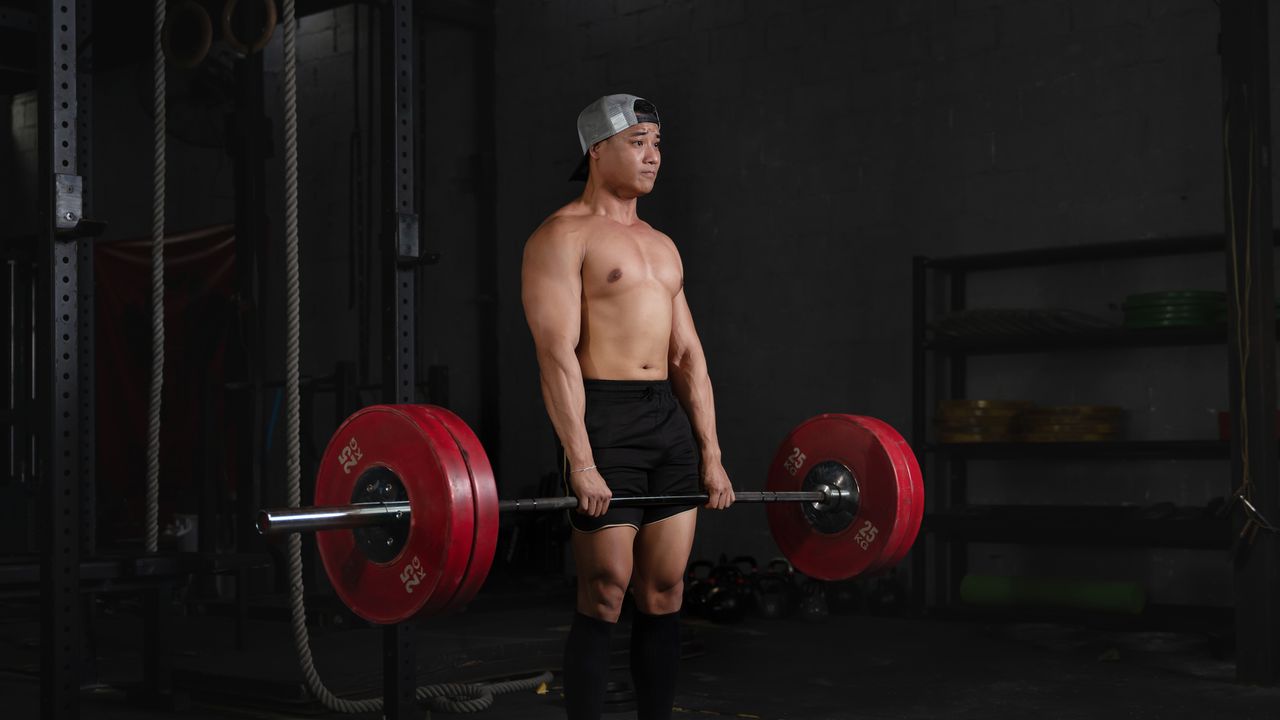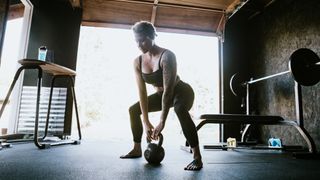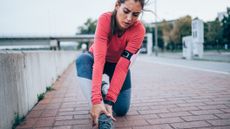This is why everyone should do more deadlifts at home
This primal move helps build up your core, legs, bum, arms and back – essential for everyday life


If you've ever crouched down to lift something heavy, such as one-half of a mattress or sofa, congratulations – you've done a deadlift. It's often called the best muscle-building move because it works on so many different muscle groups at the same time: it strengthens your back, your arms, your core, your bum and your legs. But despite this, many people assume that just because they don't know how to deadlift properly, the move isn't for them.
That's absolutely not true. If you one a set of kettlebells or the best adjustable dumbbells, or even a few heavy books you can put in a shopping bag, you can deadlift. Our guide to how to do a deadlift with dumbbells will help you get started.
Deadlifting shouldn't be reserved for the muscle-building section of the gym, usually dominated by an elite caste of the super-fit: everyone, whether they're training at home or in the gym, should be doing it.
One study, published in the Journal of Strength and Conditioning Research, has found that deadlifts can benefit people suffering from lower back pain. The study found if you're otherwise healthy and active, but suffering from muscular or "mechanical" back pain – for example, you're sitting in a chair for too long all day – deadlifting could help in rehabilitation and pain relief.

It's also great for office workers because it strengthens the muscles that are getting weaker on a day-to-day basis. When we don't use our muscles, they waste and shrink, undergoing a process called "atrophy".
Sitting down all day means we take a load off our quads and glutes. and often lean forward over our computers, straining our lower backs. Deadlifts will strengthen and shore up those muscle groups. The next thing you need is a better seat (which you can find in our best office chair guide).
Strangely, it's also great for grip strength, which is a marker of physical health and fitness. A stronger grip will not only help you perform simple tasks in your old age, like keeping hold of safety rails and gripping everyday objects, but it can also provide clues about your heart health. Harvard University found grip strength “might act as a biomarker of ageing", showing how fit and healthy you are in relation to your numerical age. The better you can grip, the younger people tend to be.
Get the Fit&Well Newsletter
Start your week with achievable workout ideas, health tips and wellbeing advice in your inbox.
The act of holding on to a heavy object, under control, which is continually trying to pull itself down means deadlifting works our forearms as well as our back and lower body. If you're looking for a time-efficient strength workout which works loads of different muscle groups at the same time, it's hard to beat the deadlift.
Matt Evans is an experienced health and fitness journalist and is currently Fitness and Wellbeing Editor at TechRadar, covering all things exercise and nutrition on Fit&Well's tech-focused sister site. Matt originally discovered exercise through martial arts: he holds a black belt in Karate and remains a keen runner, gym-goer, and infrequent yogi. His top fitness tip? Stretch.
-
 I discovered a HIIT workout that's actually beginner-friendly: 25 minutes, no repeated moves, and easy on the joints
I discovered a HIIT workout that's actually beginner-friendly: 25 minutes, no repeated moves, and easy on the jointsCardio doesn’t have to be monotonous
By Jennifer Rizzuto Published
-
 Runners—this quick routine will protect your ankles and help avoid injury
Runners—this quick routine will protect your ankles and help avoid injuryIf you’ve rolled an ankle on a run, add this quick routine to your training to prevent it from happening again
By Maddy Biddulph Published
